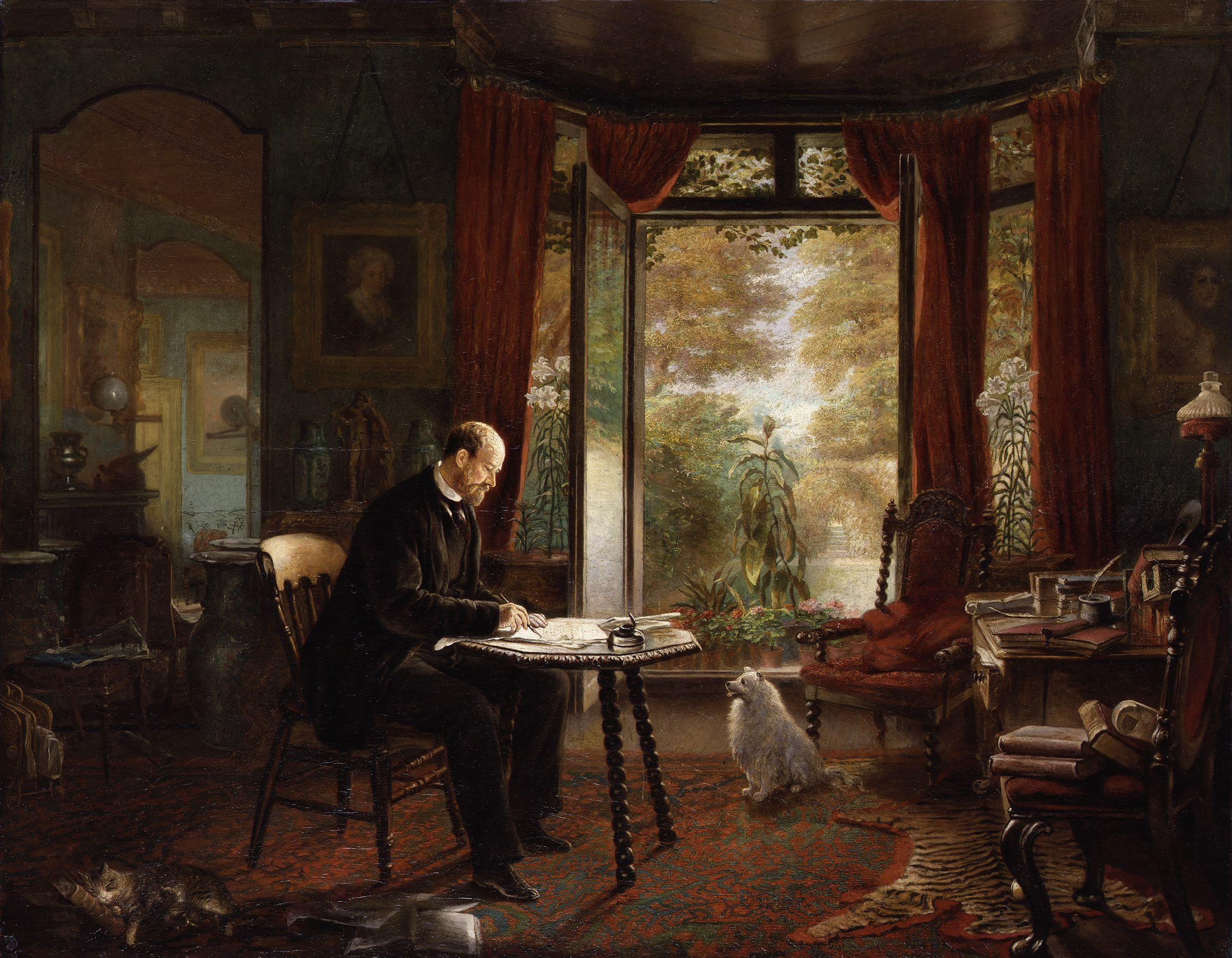|
Hard Cash (novel)
''Hard Cash, A Matter-of-Fact Romance'' is an 1863 novel by Charles Reade. The novel is about the poor treatment of patients in private insane asylums, and was part of Reade's drive to reform and improve those institutions.Subotsky, FionaHard Cash (1863) Charles Reade – psychiatrists in 19th century fiction in ''British Journal of Psychiatry'', Feb 2009, 194 (3) 211 Background It was originally serialised under the title ''Very Hard Cash'' in Charles Dickens' '' All the Year Round'' from 28 March to 26 December 1863, but the magazine's family readers blanched at Reade's strong attacks on asylums, so it did not perform well and actually depressed sales of the periodical. Dickens appended a note to the last instalment noting that the opinions of the work should be attributed to the author, not the periodical. Reade's work did better when released (with some reordering and amendment of the text, less concerned with creating instalment cliffhangers) as ''Hard Cash'' in three ... [...More Info...] [...Related Items...] OR: [Wikipedia] [Google] [Baidu] |
Charles Reade
Charles Reade (8 June 1814 – 11 April 1884) was a British novelist and dramatist, best known for '' The Cloister and the Hearth''. Life Charles Reade was born at Ipsden, Oxfordshire, to John Reade and Anne Marie Scott-Waring, and had at least four brothers. He studied at Magdalen College, Oxford, taking his B.A. in 1835, and became a fellow of his college. He was subsequently dean of arts and vice-president, taking his degree of D.C.L. in 1847. His name was entered at Lincoln's Inn in 1836; he was elected Vinerian Fellow in 1842, and was called to the bar in 1843.Edwards, P.D. "Charles Reade." ''Oxford Dictionary of National Biography.'' He kept his fellowship at Magdalen all his life but, after taking his degree, he spent most of his time in London. William Winwood Reade, the influential historian, was his nephew. Writings Reade began his literary career as a dramatist, and he chose to have "dramatist" stand first in the list of his occupations on his tombstone. As an auth ... [...More Info...] [...Related Items...] OR: [Wikipedia] [Google] [Baidu] |
Charles M
Charles is a masculine given name predominantly found in English and French speaking countries. It is from the French form ''Charles'' of the Proto-Germanic name (in runic alphabet) or ''*karilaz'' (in Latin alphabet), whose meaning was "free man". The Old English descendant of this word was '' Ċearl'' or ''Ċeorl'', as the name of King Cearl of Mercia, that disappeared after the Norman conquest of England. The name was notably borne by Charlemagne (Charles the Great), and was at the time Latinized as ''Karolus'' (as in ''Vita Karoli Magni''), later also as '' Carolus''. Some Germanic languages, for example Dutch and German, have retained the word in two separate senses. In the particular case of Dutch, ''Karel'' refers to the given name, whereas the noun ''kerel'' means "a bloke, fellow, man". Etymology The name's etymology is a Common Germanic noun ''*karilaz'' meaning "free man", which survives in English as churl (< Old English ''ċeorl''), which developed its dep ... [...More Info...] [...Related Items...] OR: [Wikipedia] [Google] [Baidu] |
Novels Set In Psychiatric Hospitals
A novel is a relatively long work of narrative fiction, typically written in prose and published as a book. The present English word for a long work of prose fiction derives from the for "new", "news", or "short story of something new", itself from the la, novella, a singular noun use of the neuter plural of ''novellus'', diminutive of ''novus'', meaning "new". Some novelists, including Nathaniel Hawthorne, Herman Melville, Ann Radcliffe, John Cowper Powys, preferred the term "romance" to describe their novels. According to Margaret Doody, the novel has "a continuous and comprehensive history of about two thousand years", with its origins in the Ancient Greek and Roman novel, in Chivalric romance, and in the tradition of the Italian renaissance novella.Margaret Anne Doody''The True Story of the Novel'' New Brunswick, NJ: Rutgers University Press, 1996, rept. 1997, p. 1. Retrieved 25 April 2014. The ancient romance form was revived by Romanticism, especially the historica ... [...More Info...] [...Related Items...] OR: [Wikipedia] [Google] [Baidu] |
Novels By Charles Reade
A novel is a relatively long work of narrative fiction, typically written in prose and published as a book. The present English word for a long work of prose fiction derives from the for "new", "news", or "short story of something new", itself from the la, novella, a singular noun use of the neuter plural of ''novellus'', diminutive of ''novus'', meaning "new". Some novelists, including Nathaniel Hawthorne, Herman Melville, Ann Radcliffe, John Cowper Powys, preferred the term "romance" to describe their novels. According to Margaret Doody, the novel has "a continuous and comprehensive history of about two thousand years", with its origins in the Ancient Greek and Roman novel, in Chivalric romance, and in the tradition of the Italian renaissance novella.Margaret Anne Doody''The True Story of the Novel'' New Brunswick, NJ: Rutgers University Press, 1996, rept. 1997, p. 1. Retrieved 25 April 2014. The ancient romance form was revived by Romanticism, especially the historica ... [...More Info...] [...Related Items...] OR: [Wikipedia] [Google] [Baidu] |
_(14779852454).jpg)


